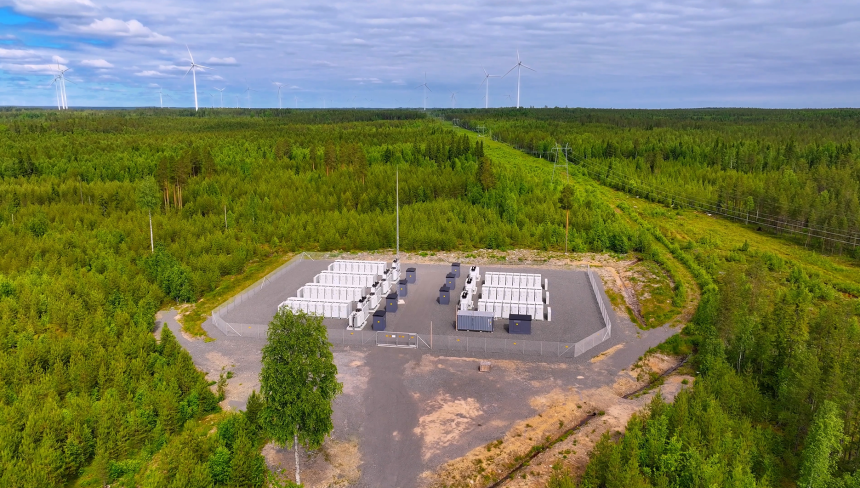The Ainola BESS, which has reached commercial operation date, efficiently supports grid stability and enables better integration of renewable energy. The system can also participate in electricity trading, both in day-ahead and intraday markets. Once Ainola is approved for the reserve markets, it will be able to contribute even more directly to frequency regulation.
“We are very pleased and proud that the Ainola BESS – whose development and deployment required pioneering solutions and a forward-looking approach – has now reached commercial operation and full market capability,” says Mika Jantunen, Head of Technology at Ilmatar.
Pioneering Energy Storage in Finland
Ainola is one of the first projects of its kind in Finland, further strengthening Ilmatar’s role not only as a renewable energy producer but also as a specialist in energy storage.
Ilmatar acted as project developer and constructor for Ainola and retains a 10% ownership stake in the system. The company is also responsible for the system’s operational optimization, trading, and both technical and commercial asset management. The majority owner is Nuveen Infrastructure, an international investor that also acquired the Piiparinmäki wind farm from Ilmatar in 2019.
“During the implementation of Ainola, we developed efficient processes for the construction of storage systems, system integration, and multi-market use. I’m confident these learnings will greatly benefit our future projects,” Jantunen adds.
Energy storage solutions play a key role in the transition toward a more decentralized, flexible, and cleaner energy system. Investing in battery systems is part of Ilmatar’s broader strategy to develop, build, and operate clean energy production facilities and efficiently bring that energy to market.
Energy Storage – Key to Solving Weather-Dependent Production Challenges
As renewable energy becomes more prevalent, energy storage systems are becoming increasingly important. They help manage the variability of wind and solar power and provide a rapid response when production and consumption fall out of balance.
The Ainola BESS has a power output of 30 megawatts and a storage capacity of 41 megawatt-hours. The system is designed to operate for at least 15 years.
“This is a significant step toward a fossil-free energy ecosystem. Battery storage enables the use of renewable energy precisely when it’s most needed – while also addressing the challenges of reliability and emission reductions,” says Niklas Löf, Project Manager responsible for the construction of Ainola.




